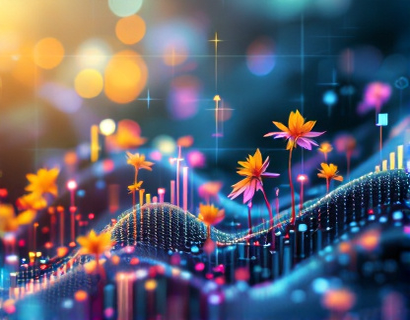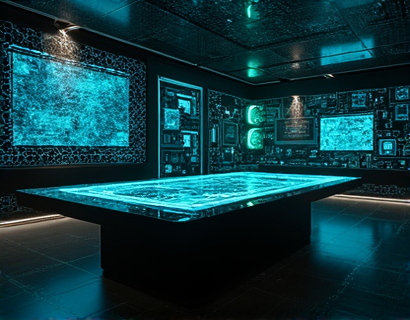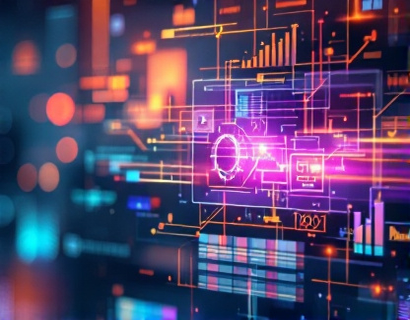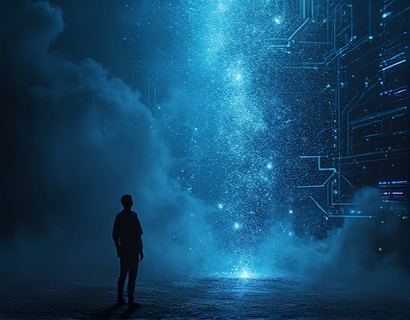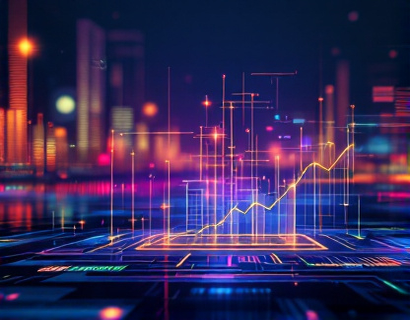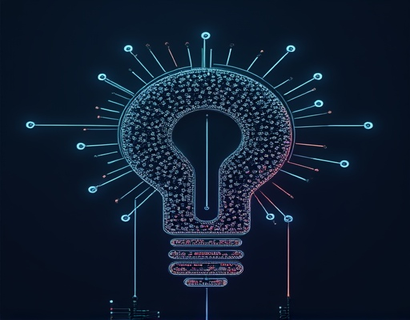AI-Powered Music Composition: Revolutionizing Creativity with Intelligent Software
The integration of artificial intelligence in music composition has marked a significant turning point in the evolution of music creation. This technological advancement has not only streamlined the composition and production process but has also opened new avenues for creativity and sound quality enhancement. Intelligent software designed for music creation is transforming the way artists, both seasoned professionals and emerging talents, approach their craft. This article delves into the transformative impact of AI in music composition, exploring how these tools are redefining artistic potential and simplifying the music-making process.
Evolution of Music Composition Tools
Historically, music composition has been a deeply personal and often solitary process, relying heavily on human intuition, skill, and experience. Traditional tools such as sheet music, MIDI keyboards, and digital audio workstations (DAWs) have been the backbone of music creation. However, these tools, while powerful, required a steep learning curve and a high level of technical proficiency. The advent of AI in music composition has bridged this gap, introducing user-friendly interfaces and sophisticated algorithms that democratize music creation.
The early stages of AI in music involved simple pattern recognition and basic note generation. These initial systems could create rudimentary melodies and harmonies but lacked the depth and nuance required for professional music production. Fast forward to the present, and AI has evolved to understand complex musical structures, emotional nuances, and even genre-specific characteristics. Modern AI music composition tools can analyze vast datasets of musical pieces, learn from them, and generate original content that resonates with human listeners.
How AI Enhances Creativity
One of the most significant benefits of AI in music composition is its ability to enhance creativity. AI algorithms can suggest novel chord progressions, melodies, and even entire sections of a song, providing composers with fresh ideas and inspiration. This collaborative approach between human creativity and machine intelligence fosters a dynamic composition process where artists can explore uncharted musical territories.
For instance, AI can analyze a composer's previous work and identify patterns or preferences, then generate new content that aligns with these traits while introducing variations. This not only saves time but also pushes the boundaries of what the composer might have envisioned on their own. The ability to experiment with different styles and genres without the fear of failure is a game-changer for many artists.
Streamlining the Composition Process
The composition process, from initial idea to final product, can be time-consuming and labor-intensive. AI-powered tools significantly streamline this process, making it more efficient and accessible. Here are some key ways AI simplifies music composition:
- Idea Generation: AI can quickly generate a multitude of musical ideas based on user inputs such as mood, tempo, and genre. This rapid ideation phase helps composers overcome creative blocks and explore various directions.
- Automated Arrangement: AI algorithms can arrange generated ideas into a coherent structure, including verse-chorus formats, bridge sections, and transitions. This automation reduces the manual effort required to craft a song's architecture.
- Real-time Collaboration: AI tools often support real-time collaboration, allowing multiple artists to work on the same project simultaneously, regardless of their physical location. This feature is particularly beneficial for remote teams and global collaborations.
- Sound Design and Synthesis: AI can create and manipulate sounds, from synthetic textures to sampled instruments, offering an extensive palette of sonic options. This capability simplifies the sound design process and enables the creation of unique sonic identities.
Enhancing Sound Quality
Sound quality is a critical aspect of music production, and AI has made significant strides in this area. Advanced algorithms can analyze and optimize audio files, ensuring high-fidelity sound across various playback systems. Here are some ways AI contributes to sound quality enhancement:
Firstly, AI-powered noise reduction and audio restoration tools can clean up recordings, removing unwanted noise and artifacts without compromising the original audio's integrity. This is particularly useful for old recordings or live captures that require restoration.
Secondly, AI can assist in mastering, the final stage of music production where the mix is polished and prepared for distribution. AI mastering tools analyze the mix and apply optimal adjustments for loudness, EQ, compression, and stereo imaging, ensuring a professional-grade finish.
Lastly, AI-driven virtual instruments and plugins can simulate the nuances of acoustic instruments with remarkable accuracy. These tools capture the subtleties of human performance, making synthetic sounds more expressive and lifelike.
Accessibility and Inclusivity
One of the most profound impacts of AI in music composition is its ability to make music creation more accessible. Traditional music production required expensive equipment, extensive training, and a deep understanding of music theory. AI-powered tools lower these barriers, allowing anyone with a computer and an internet connection to start composing music.
For individuals with disabilities, AI tools can be particularly empowering. For example, gesture-based interfaces and voice-controlled software enable people with physical limitations to create music. Additionally, AI can assist those with musical dyslexia or other learning differences by providing visual and auditory cues that aid in understanding musical concepts.
Moreover, AI can help bridge cultural gaps by introducing users to diverse musical traditions and styles. This exposure fosters a more inclusive music scene where creators from different backgrounds can collaborate and learn from each other.
Challenges and Considerations
While AI in music composition offers numerous benefits, it is not without its challenges and considerations. One of the primary concerns is the potential loss of human touch and emotional depth in music. Critics argue that AI-generated music can lack the soul and authenticity that a human composer brings to a piece. However, this perception is evolving as AI systems become more sophisticated and capable of mimicking human creativity.
Another consideration is the ethical use of AI in music. Issues such as copyright infringement, where AI systems trained on copyrighted material generate new content, need to be addressed. The music industry must establish clear guidelines and regulations to ensure fair use and protect creators' rights.
Furthermore, the reliance on AI tools can sometimes lead to over-dependence, where artists may become less skilled in traditional composition techniques. Balancing the use of AI with fundamental music education is crucial to maintaining a well-rounded skill set.
Future Prospects
The future of AI in music composition is bright, with ongoing advancements promising even more innovative possibilities. As AI algorithms become more advanced, we can expect:
- More sophisticated collaboration between humans and machines, where AI acts as a true creative partner rather than just a tool.
- Enhanced personalization, with AI systems tailored to individual artists' styles and preferences, providing highly customized composition assistance.
- Integration with other creative fields such as visual arts and virtual reality, creating immersive multimedia experiences that blend music with other forms of expression.
- Improved accessibility through more intuitive interfaces and adaptive technologies, making music creation available to an even broader audience.
In conclusion, AI-powered music composition is not just a technological novelty but a transformative force that is reshaping the music industry. By streamlining the creation process, enhancing sound quality, and making music more accessible, AI tools empower artists to push the boundaries of their creativity. As this technology continues to evolve, it will undoubtedly unlock new artistic potentials and redefine what is possible in the world of music.





